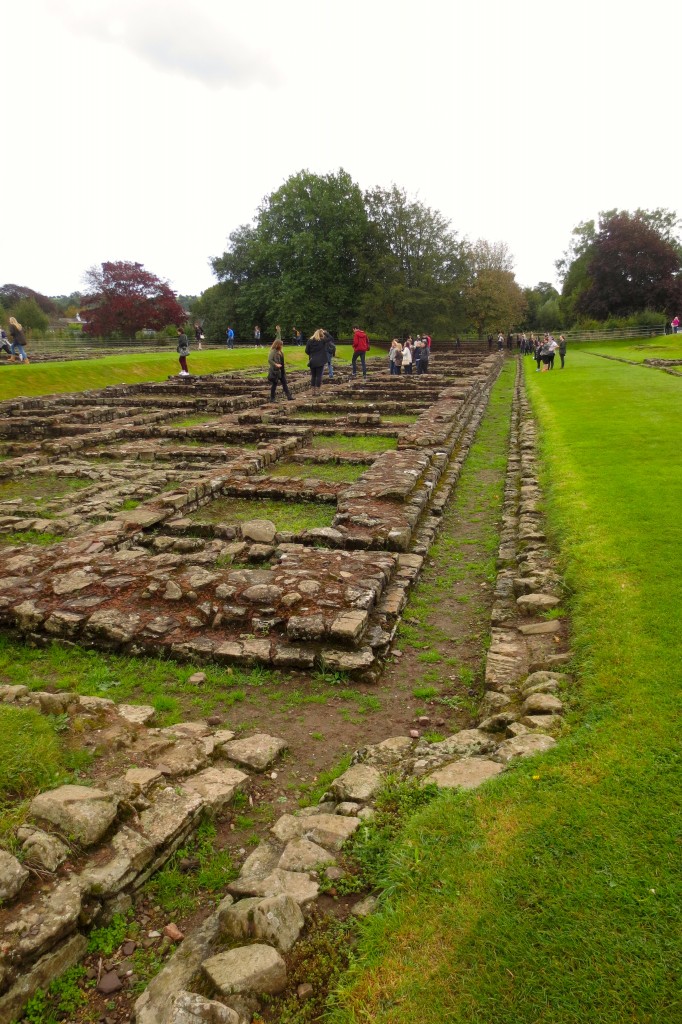 |
| Soldier barracks at Caerleon |
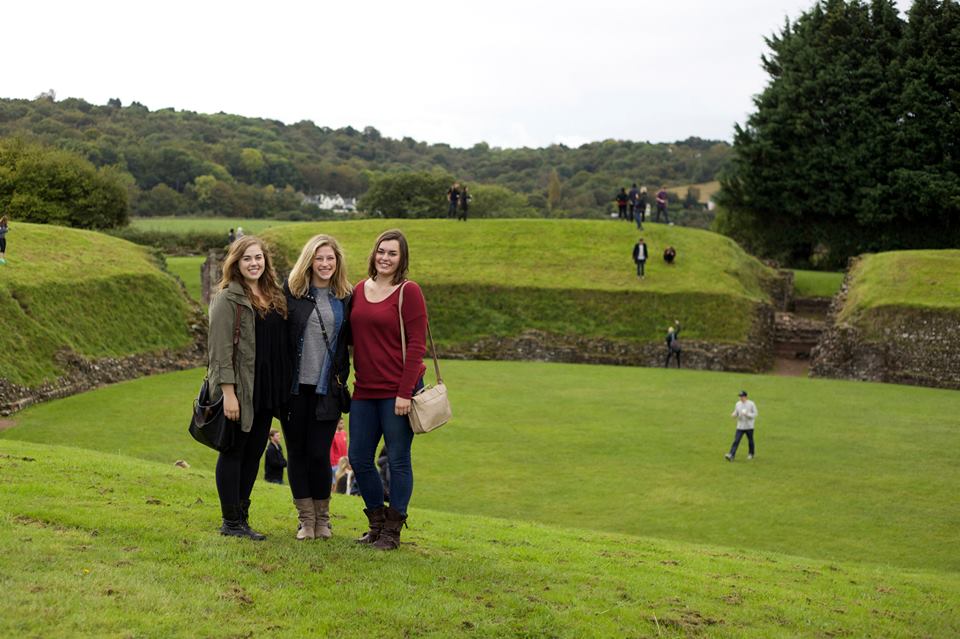 |
| Roman amphitheater at Caerleon with Jasmine and Emily |
We embarked early Saturday to the Roman Legionary amphitheatre in Caerleon. The weather was crisp and slightly rainy, and the drive there breath-taking: hillsides clad in green hue, sectioned off for different farmers’ sheep. It was a fantastic introduction to fall as well as a subtle reminder that home is where the heart is. If you substituted the fields of sheep for dairies and added some Redwood trees, you could call it Humboldt. Perhaps the most astounding difference is the rich history they have there, while Humboldt, you never find ruins, much less anything older than four hundred years. Cearphilly was next, another Castle in Ruin, beautiful nonetheless. Then St. Fagans, a heritage site where all parts of Welsh history congregate: a helpful walk around the grounds gave us insight into the Welsh community. One night in Swansea and Sunday, a tour to Blaenavon’s Big Pit coal mine where we went down to experience, first hand the difficulties of coal mining by veteran miners.
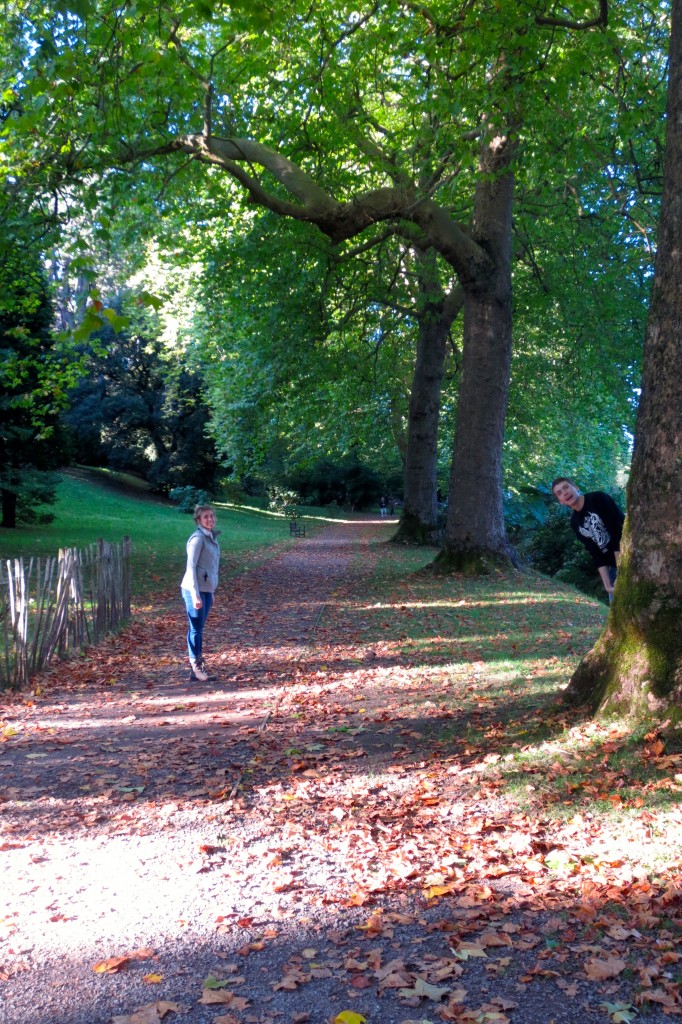 |
| Brandon and Blair at the gardens |
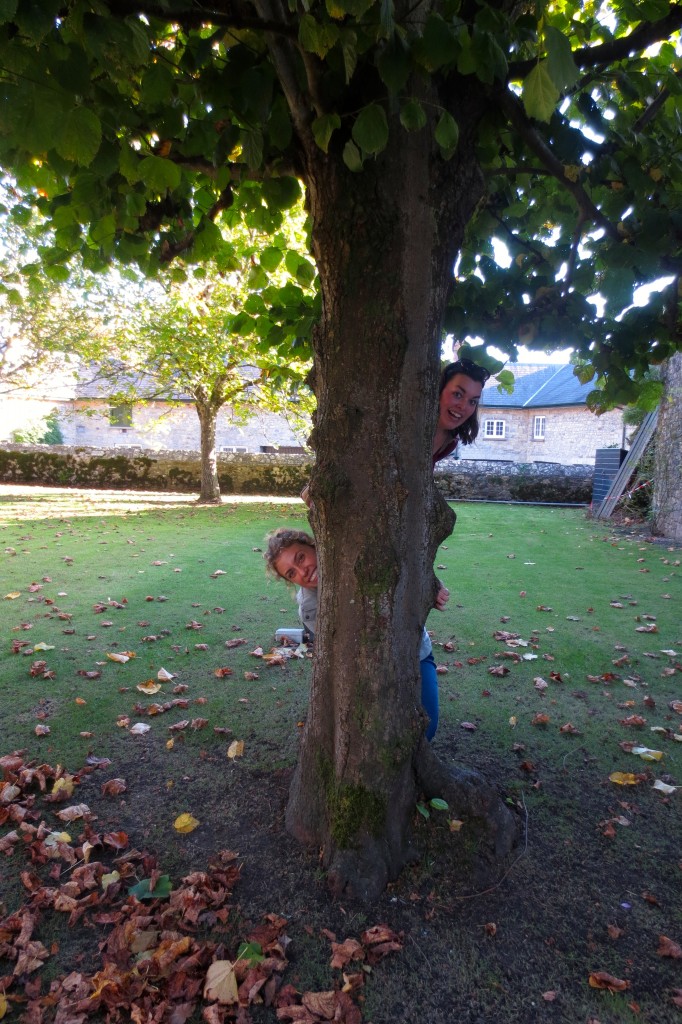 |
| Blair and I at the gardens |
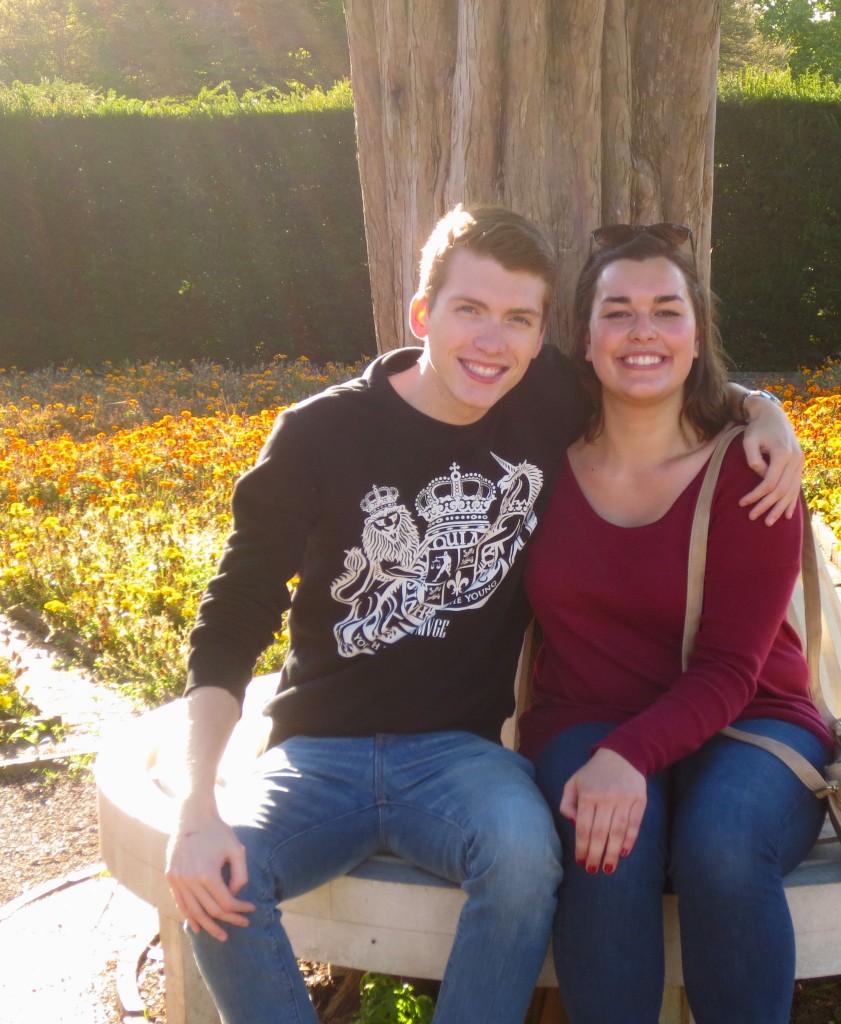 |
| Brandon and I at the gardens |
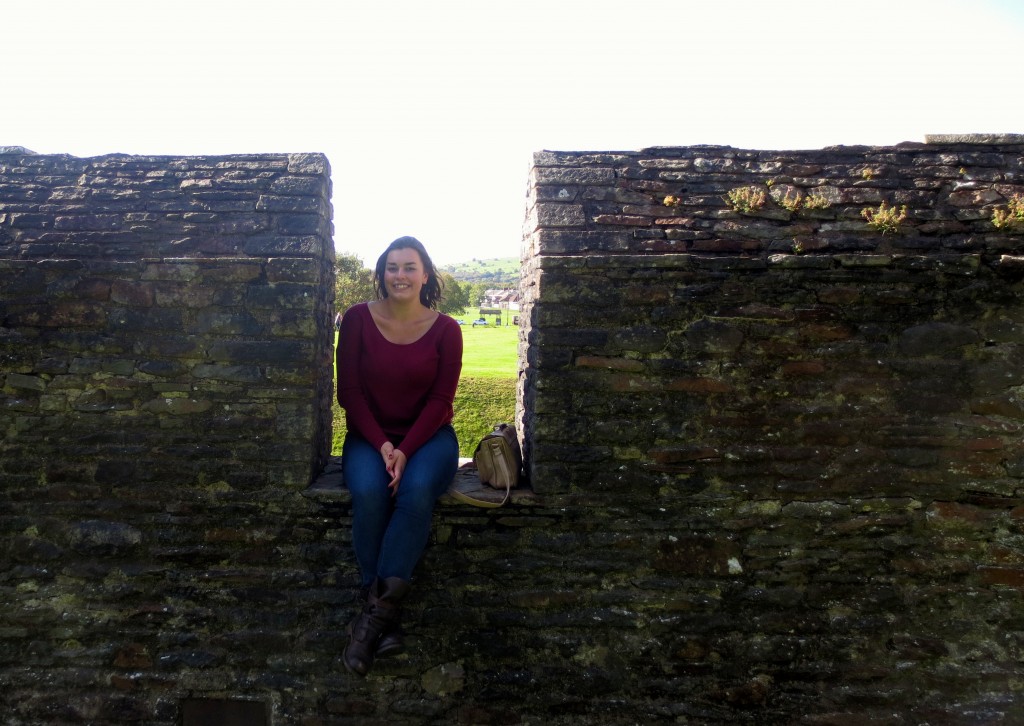 |
| Me at the Caerphilly Castle |
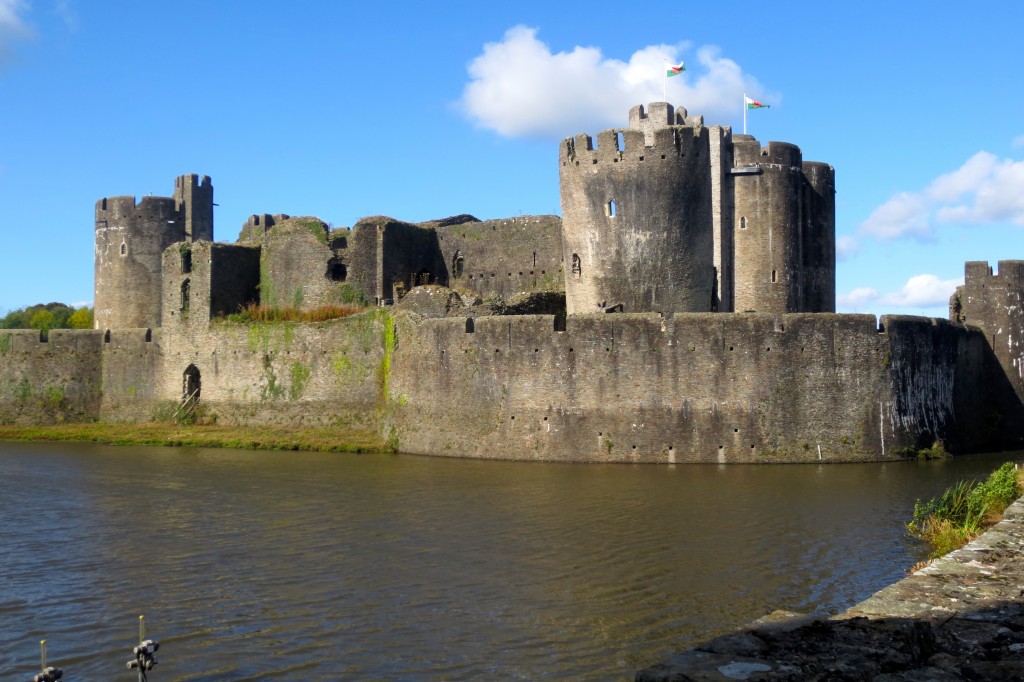 |
| Past the second wall at Caerphilly, inside the moat |
My favourite, though was Tintern Abbey of which Wordsworth’s poem of the same name describes as everlasting, a refuge from city bustle and even from himself ever-changing:
These beauteous forms,
Through a long absence, have not been to me
As is a landscape to a blind man's eye:
But oft, in lonely rooms, and 'mid the din
Of towns and cities, I have owed to them,
In hours of weariness, sensations sweet,
Felt in the blood, and felt along the heart;
And passing even into my purer mind
With tranquil restoration:—feelings too
Of unremembered pleasure: such, perhaps,
As have no slight or trivial influence
On that best portion of a good man's life,
His little, nameless, unremembered, acts
Of kindness and of love. Nor less, I trust,
To them I may have owed another gift,
Of aspect more sublime; that blessed mood,
In which the burthen of the mystery,
In which the heavy and the weary weight
Of all this unintelligible world,
Is lightened:—that serene and blessed mood,
In which the affections gently lead us on,—
Until, the breath of this corporeal frame
And even the motion of our human blood
Almost suspended, we are laid asleep
In body, and become a living soul:
While with an eye made quiet by the power
Of harmony, and the deep power of joy,
We see into the life of things.
If this
Be but a vain belief, yet, oh! how oft—
In darkness and amid the many shapes
Of joyless daylight; when the fretful stir
Unprofitable, and the fever of the world,
Have hung upon the beatings of my heart—
How oft, in spirit, have I turned to thee,
O sylvan Wye! thou wanderer thro' the woods,
How often has my spirit turned to thee!
William Wordsworth “Tintern Abbey” 1798, verses 2 and 3
After a month in London, coming from a small town, I find his words relatable. That no matter your changing like, the river and the green of which our memories are colored will remain the same. In this sameness, we can rely to carry peaceful or happy memories. For Wordsworth, it is an escape from the city, for me, it is a reminder of home.
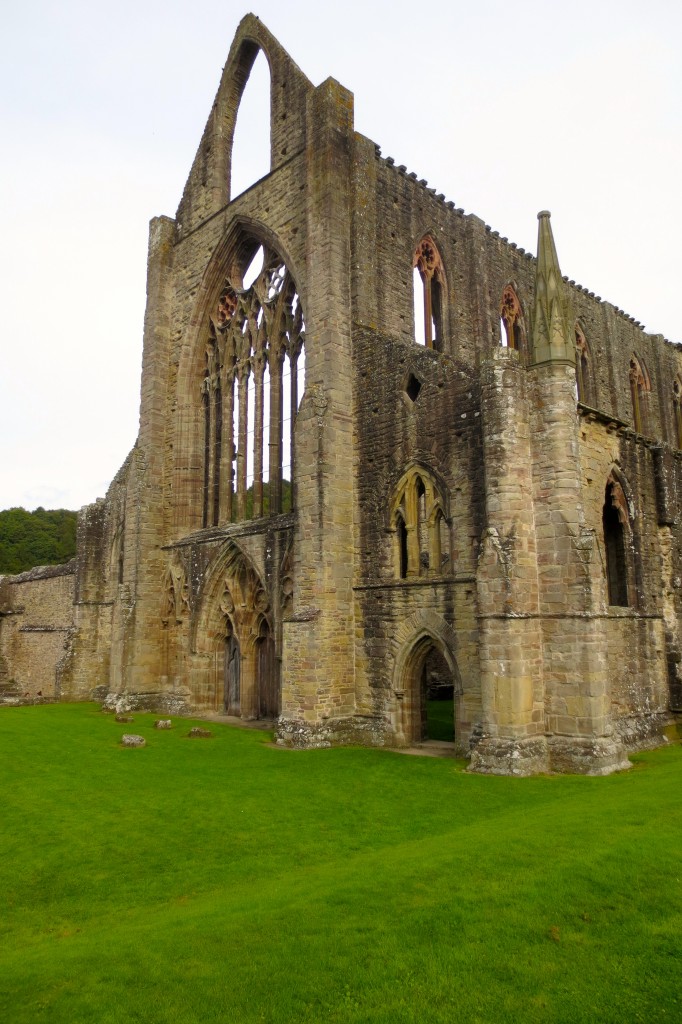 |
| Front of Tintern Abbey |
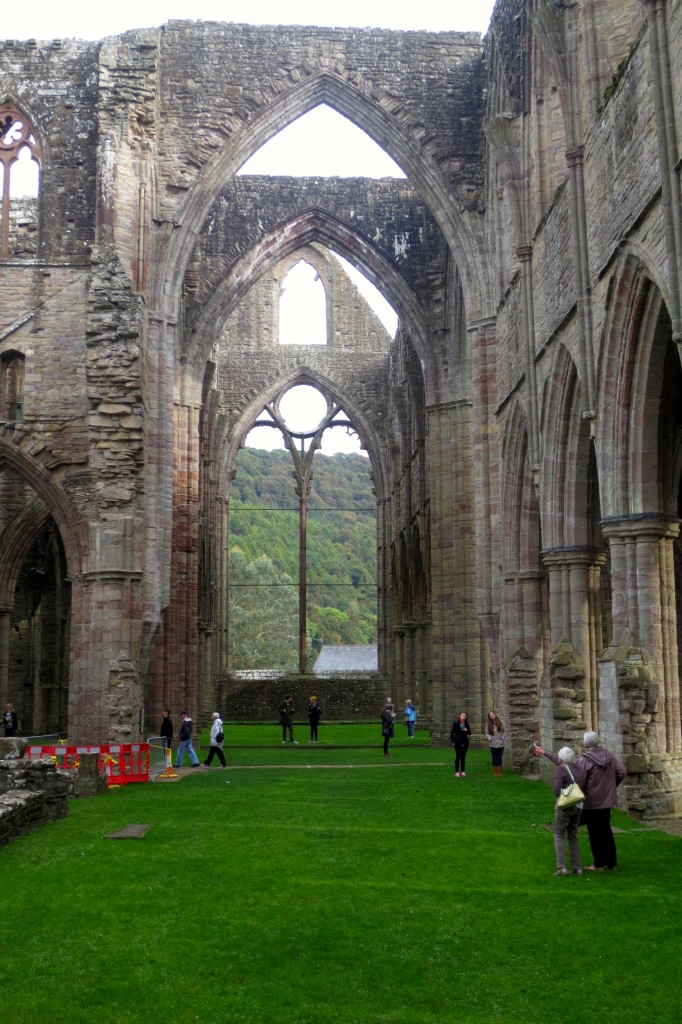 |
| Inside the front door at Tintern Abbey |
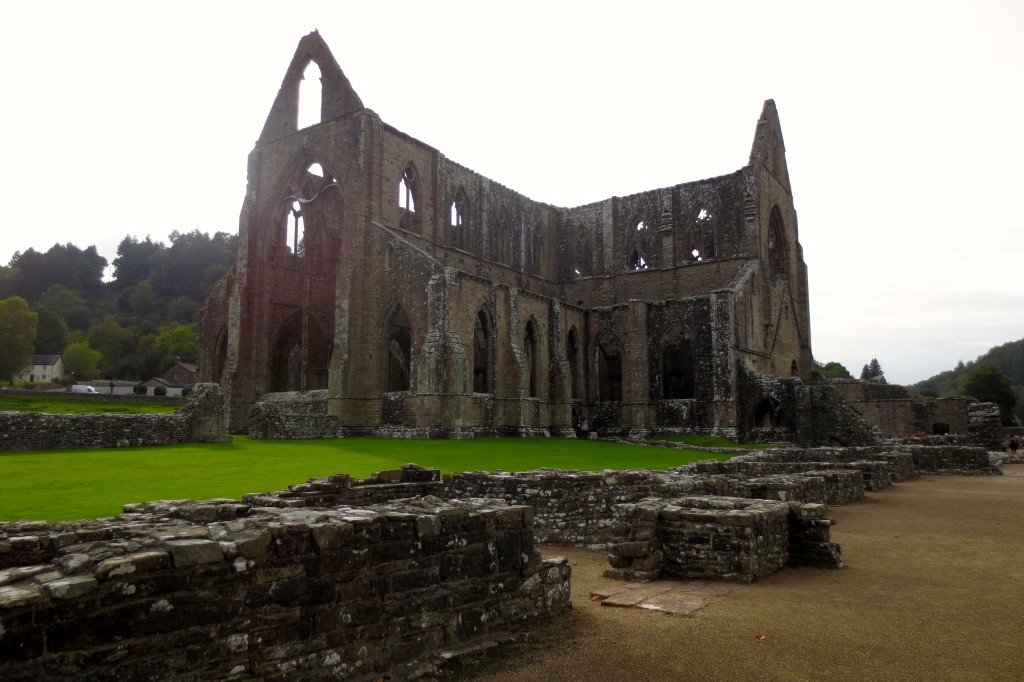 |
| Back of Tintern Abbey, looking through the infirmary |
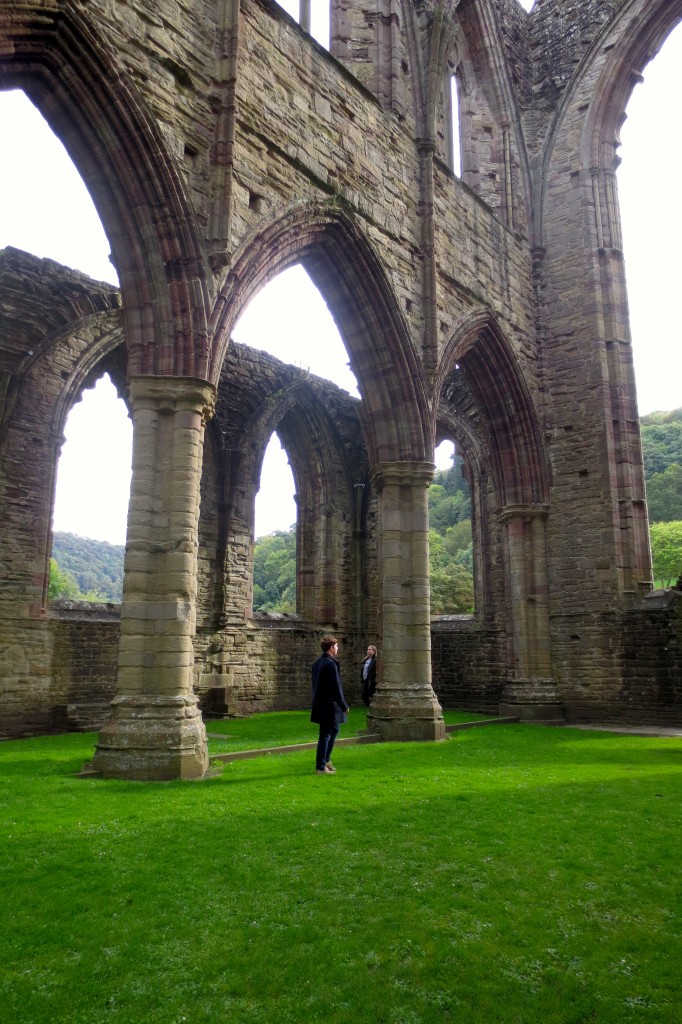 |
| One of the most amazing and peaceful spots to stand in |
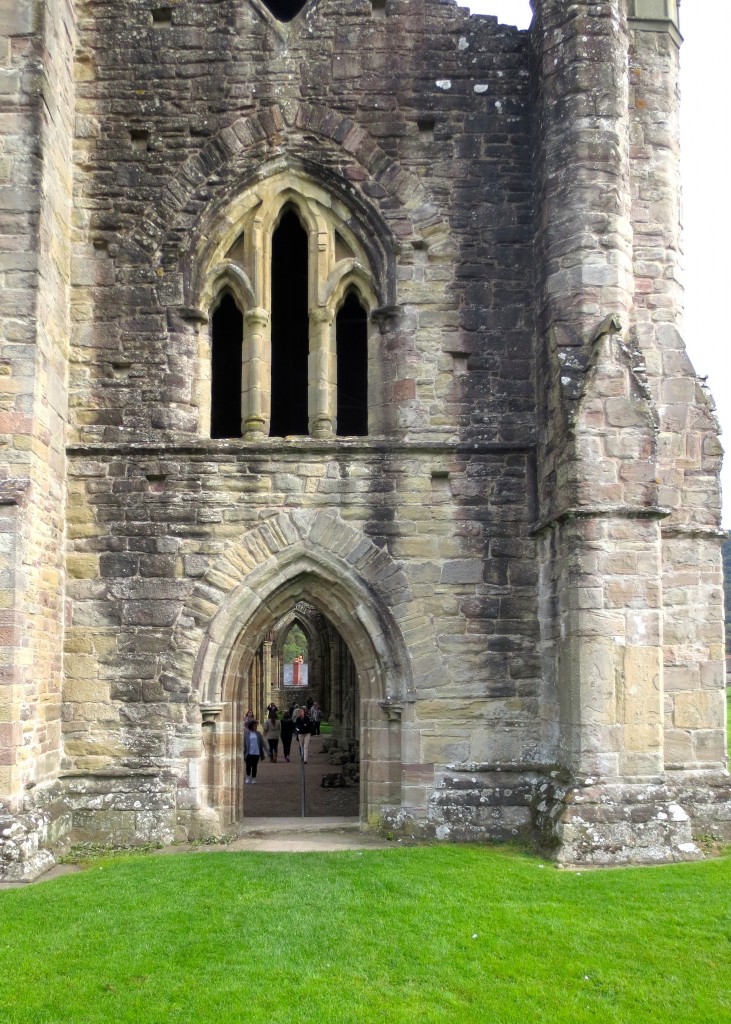 |
| Amazing architecture |
This trip was full and fun, maybe one of the most interesting parts is that we all had no idea how it would play out as CEA planned it all for us. It was refreshing because we didn’t have to worry about how to get to our destinations, all we had to do was learn and absorb the community.
Hanna Neitzke is the Fall 2014 CEA MOJO in London, England. She is currently a Senior at Humboldt State University.







